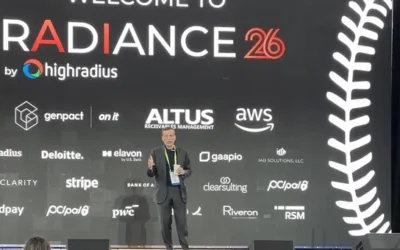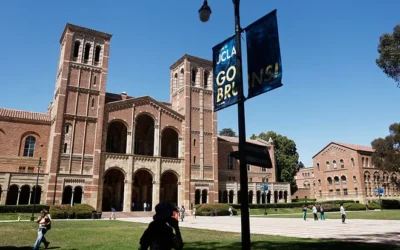The Trial Balance is CFO.com’s weekly preview of stories, stats and events to help you prepare.
Part 1 — The CPA pipeline shrink
Business Insider reported last week that PwC plans to cut U.S. campus hiring by almost a third by 2028, a move the firm confirmed after the outlet obtained part of an internal presentation. The document, shared with an alumni group at a major U.S. college, shows PwC expects to hire 2,197 tax and assurance associates in 2028, 1,045 fewer than in 2025.
For CFOs, that shift matters. Corporate finance teams often rely on Big Four experience and trained alumni to bring not only technical knowledge but also a mindset of grit, rigor and precision. If the firms use outsourcing or technology to do work while changing how new accountants are trained, the downstream effect will be quickly felt in companies’ finance functions too.
In a statement to BI, PwC said the slide the news outlet obtained was real. PwC explained that “the rapid pace of technological change is reshaping how we work, what our clients require and the skills our people need to thrive.” It also cited “historically low” attrition as a reason for the cuts.
The efficiency story is one partners and clients can appreciate, but it exposes a larger challenge for both the profession and CFOs. Those entry-level jobs such as auditing cash, ticking and tying numbers and working through the grind of tax prep were the proving ground for generations of accountants. Many CFOs credit these firms for the development of their technical instincts.
Adding to the disruption, PwC’s AI assurance leader Jenn Kosar also recently told BI that new hires are being fast tracked into managerial roles. Kosar said that within three years “first years are functioning more like fourth years,” overseeing AI doing routine audit tasks and focusing instead on critical thinking and professional skepticism early in their careers.
If new hires are not doing that routine work and are focused on supervising AI outputs, they may struggle to develop the same bedrock skills currently required. The profession risks raising a generation of professionals who understand review and oversight, but lack the depth of experience that comes only from working through the details themselves.
Though outsourcing and agentic AI have helped drive efficiency in many firms, the rapid push to implement these tools could quietly erode the traditional path where accountants built their skills. The benefits are clear, but the long-term impact on talent development is less certain.
That shift could also reduce the ability of future CPAs to branch out into niche industries or build their own practices, since many of the skills needed to run a firm are learned by doing in those first years. Limiting that experience may help the Big Four retain talent longer by reducing competition from the many opportunities to pursue work in private accounting, start-ups and alumni-led businesses.
The CPA profession has faced pipeline concerns for years from declining CPA candidates to attrition in public accounting. Now even the entry point is shrinking. For CFOs watching their future talent pools, PwC’s move is another sign that the fundamentals of how accounting talent is developed are subject to change.
Part 2 — This week
Here’s a list of important market events slated for the week ahead.
Monday, Aug. 25
- New home sales, July
- Dallas Fed President Lorie Logan speaks
- New York Fed President John Williams speaks
Tuesday, Aug. 26
- Durable-goods orders, July
- S&P Case-Shiller home price index, June
- Consumer confidence, Aug.
Wednesday, Aug. 27 — None scheduled.
Thursday, Aug. 28
- Initial jobless claims, Aug. 23
- Q2 GDP (First revision)
Friday, Aug. 29
- PCE index, July
- Core PCE index, July
- Advanced U.S. trade balance in goods, July
- Advanced retail inventories, July
- Advanced wholesale inventories, July
- Chicago Business Barometer (PMI), Aug.
- Consumer sentiment — final, Aug.
Part 3 — OpenAI CFO Sarah Friar on Squawk Box
OpenAI CFO Sarah Friar sat down with CNBC’s Andrew Ross Sorkin last week to talk through the company’s ChatGPT 5 launch, developer momentum and the heavy economic footprint of AI infrastructure.
She described the rollout as a sign of strength for OpenAI’s consumer and enterprise business alike. “With any launch, when you have 700 million weekly active users, people are very opinionated,” Friar said. “But what we’ve seen is acceleration in Plus and Pro subscriptions and really nice momentum in the enterprise and with developers.”
That momentum is showing up in how developers use the tool. Token activity for reasoning “was up eight-fold in just a week,” Friar noted, pointing to Salesforce’s use of GPT-5 inside its Agentforce platform as an early example of enterprise adoption. Salesforce earlier this month touted Agentforce as a tool to help drive revenue for its sales team.
On the larger question of whether the AI boom is fleeting, Friar rejected the “sugar rush” framing some analysts have used. “It’s more like the railroads or the buildout of electricity than anything I’ve seen,” she said. “AI is voracious for GPUs and compute. Our biggest challenge is being under compute. That’s why we launched Stargate and why we’re doing bigger builds.”





